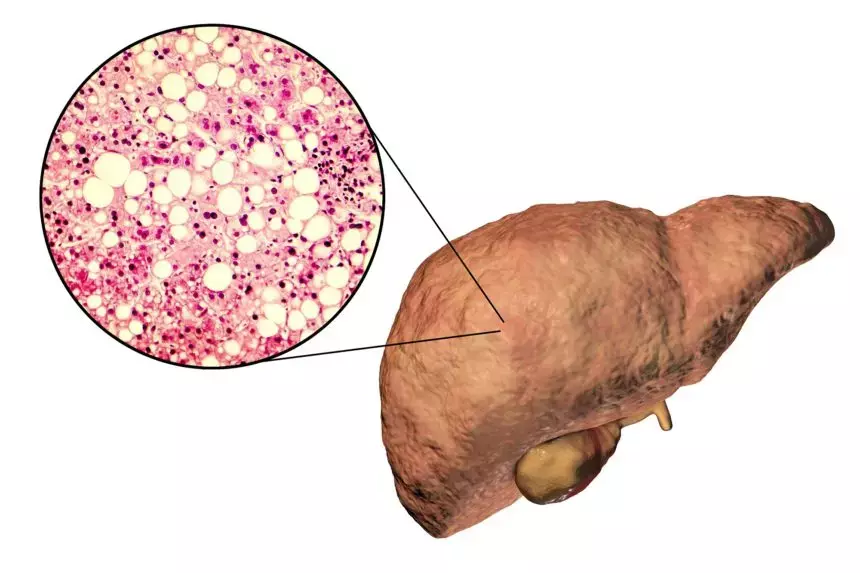- Home
- Medical news & Guidelines
- Anesthesiology
- Cardiology and CTVS
- Critical Care
- Dentistry
- Dermatology
- Diabetes and Endocrinology
- ENT
- Gastroenterology
- Medicine
- Nephrology
- Neurology
- Obstretics-Gynaecology
- Oncology
- Ophthalmology
- Orthopaedics
- Pediatrics-Neonatology
- Psychiatry
- Pulmonology
- Radiology
- Surgery
- Urology
- Laboratory Medicine
- Diet
- Nursing
- Paramedical
- Physiotherapy
- Health news
- Fact Check
- Bone Health Fact Check
- Brain Health Fact Check
- Cancer Related Fact Check
- Child Care Fact Check
- Dental and oral health fact check
- Diabetes and metabolic health fact check
- Diet and Nutrition Fact Check
- Eye and ENT Care Fact Check
- Fitness fact check
- Gut health fact check
- Heart health fact check
- Kidney health fact check
- Medical education fact check
- Men's health fact check
- Respiratory fact check
- Skin and hair care fact check
- Vaccine and Immunization fact check
- Women's health fact check
- AYUSH
- State News
- Andaman and Nicobar Islands
- Andhra Pradesh
- Arunachal Pradesh
- Assam
- Bihar
- Chandigarh
- Chattisgarh
- Dadra and Nagar Haveli
- Daman and Diu
- Delhi
- Goa
- Gujarat
- Haryana
- Himachal Pradesh
- Jammu & Kashmir
- Jharkhand
- Karnataka
- Kerala
- Ladakh
- Lakshadweep
- Madhya Pradesh
- Maharashtra
- Manipur
- Meghalaya
- Mizoram
- Nagaland
- Odisha
- Puducherry
- Punjab
- Rajasthan
- Sikkim
- Tamil Nadu
- Telangana
- Tripura
- Uttar Pradesh
- Uttrakhand
- West Bengal
- Medical Education
- Industry
Semaglutide Resolves Nonalcoholic steatohepatitis, Finds Study

Nonalcoholic steatohepatitis (NASH) is a common disease that is associated with increased morbidity and mortality, but treatment options are limited. A recent study suggests that treatment with semaglutide resolves NASH with a significantly higher percentage than placebo. The research has been published in The NEW ENGLAND JOURNAL Of MEDICINE on March 25, 2021.
Strong evidence indicates that type 2 Diabetes Mellitus is one of the most important risk factors for faster progression of Nonalcoholic fatty liver disease (NAFLD) to NASH, cirrhosis and hepatocellular carcinoma (HCC). Some previous trials on GLP-1 RAs have also consistently demonstrated that these drugs exert beneficial effects on the histological resolution of NASH. However, there are no approved drugs to specifically treat the NAFLD or NASH. Therefore, Dr Philip N. Newsome, M.B., Ch.B., PhD and his team, conducted a study to assess the efficacy and safety of the glucagon-like peptide-1 receptor agonist semaglutide in patients with NASH.
It was a 72-week, double-blind phase 2 trial involving patients with biopsy-confirmed NASH and liver fibrosis of stage F1, F2, or F3. Researchers randomly assigned 320 patients to receive once-daily subcutaneous semaglutide at a dose of 0.1 mg (80 patients), 0.2 mg (78 patients), or 0.4 mg (82 patients) or to receive placebo (80 patients). The major outcome assessed was the resolution of NASH with no worsening of fibrosis. They also evaluated for improvement of at least one fibrosis stage with no worsening of NASH. The researchers performed these outcomes only in patients with stage F2 or F3 fibrosis; other analyses were performed in all the patients.
Key findings of the study were:
- Upon analysis, the researchers noted that the percentage of patients in whom NASH resolution was achieved with no worsening of fibrosis was
♦ 40% in the 0.1-mg group,
♦ 36% in the 0.2-mg group,
♦ 59% in the 0.4-mg group, and
♦ 17% in the placebo group.
- They also noted an improvement of the fibrosis stage in 43% of the patients in the 0.4-mg group and 33% of the patients in the placebo group.
- They observed a weight loss of 13% in the 0.4-mg group and 1% in the placebo group.
- However, they reported that the incidence of nausea, constipation, and vomiting was higher in the 0.4-mg group than in the placebo group (nausea, 42% vs 11%; constipation, 22% vs 12%; and vomiting, 15% vs 2%).
- They also reported malignant neoplasm in 3 patients who received semaglutide (1%).
- Overall, neoplasms (benign, malignant, or unspecified) were reported in 15% of the patients in the semaglutide groups and 8% in the placebo group with no pattern of occurrence in specific organs.
The authors concluded, "This phase 2 trial involving patients with NASH showed that treatment with semaglutide resulted in a significantly higher percentage of patients with NASH resolution than placebo. However, the trial did not show a significant between-group difference in the percentage of patients with an improvement in the fibrosis stage. "
For further information:
Dr Kartikeya Kohli is an Internal Medicine Consultant at Sitaram Bhartia Hospital in Delhi with super speciality training in Nephrology. He has worked with various eminent hospitals like Indraprastha Apollo Hospital, Sir Gangaram Hospital. He holds an MBBS from Kasturba Medical College Manipal, DNB Internal Medicine, Post Graduate Diploma in Clinical Research and Business Development, Fellow DNB Nephrology, MRCP and ECFMG Certification. He has been closely associated with India Medical Association South Delhi Branch and Delhi Medical Association and has been organising continuing medical education programs on their behalf from time to time. Further he has been contributing medical articles for their newsletters as well. He is also associated with electronic media and TV for conduction and presentation of health programs. He has been associated with Medical Dialogues for last 3 years and contributing articles on regular basis.
Dr Kamal Kant Kohli-MBBS, DTCD- a chest specialist with more than 30 years of practice and a flair for writing clinical articles, Dr Kamal Kant Kohli joined Medical Dialogues as a Chief Editor of Medical News. Besides writing articles, as an editor, he proofreads and verifies all the medical content published on Medical Dialogues including those coming from journals, studies,medical conferences,guidelines etc. Email: drkohli@medicaldialogues.in. Contact no. 011-43720751


